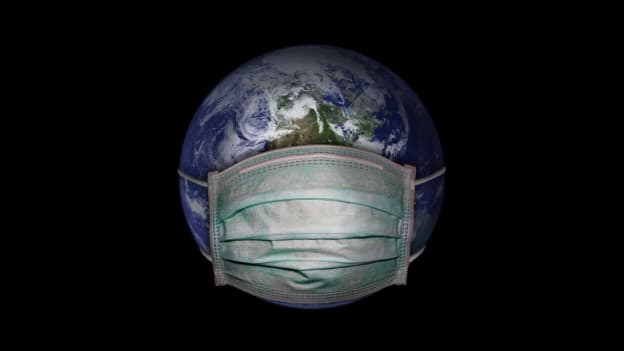Are we ready for the next pandemic?

Response to the Pandemic
It is abundantly clear that COVID-19 has crippled the entire world, however what interests me is the concerted effort mankind has made in the last 10 months in fighting against it. From policy makers to pedestrians, everyone has tried their bit to prevent the spread of this highly contagious virus. The lightning speed & efficacy with which medical researchers and pharmaceutical organizations have responded to the epidemic is uncanny & unprecedented. Entire scientific community huddled to invent the panacea. Today, we are at the horizon where multiple vaccines are available at one tenth of its average development time and presumably all safe to consume without any adverse side effects on human health. This tale is nothing short of a classic scientific ingenuity.
This response of mankind is analogous to the biological reaction triggers when people face life threatening situations. The perception of threat to life activates the nervous system and triggers an acute stress response by releasing certain hormones that prepares the body to fight or flee. Undoubtedly, personified adrenaline and cortisol so released against COVID-19, triggered a fight response.
But, how would mankind react when the threat is not imminent? Whether the entire human race, in the same manner & spirit, would ramp-up and orchestrate their effort to deal with crises having incubation period of 14 - 21 years rather than 14-21 days? Will it create a same fight response or momentarily fleeing away would give a sense of circumventing the threat? Answers to all these questions could give us a clue of how mankind would respond to the ‘not-now but up-next’ pandemic, “The Climate Emergency”.
Impact of pandemic on Jobs and Skills
If we compare GDP loss due to COVID-19, it is estimated to be around 6.5% points in FY 20-21 as per World Economic Outlook 2020. This economic downturn is unparalleled & excruciating owing to the fact that it is sharp and sudden, affecting developed, developing and underdeveloped countries alike. If I were to tell one significant change that the current pandemic brought in work, I would say it is ‘Digitalization’. In hindsight it looks like that the shift was overnight. But whether future rejig of labour market would give us luxury to shift overnight?
Analysts suggest that unlike short term loss due to COVID-19, permanent shifts in climate will have catastrophic repercussions which will be irreversible and would disproportionately affect vulnerable countries. If climate concerns are not addressed adequately it could lead to risk of rising unemployment, poverty and inequality.
Green Literacy
In the first global study to analyze the implications of the transition to low-carbon and resource-efficient economies for skills, gender and occupations, ILO in its report Skills for Greener Future 2019 shows that in its transition to energy sustainability by 2030, almost 25 million jobs will be created and nearly 7 million jobs would be lost globally. Of the latter, 5 million can be reclaimed through labor reallocation. It would leave around 1 - 2 million jobless without equivalent vacancies arising in other industries.
Employment creation would be driven by the higher labour demand of renewable energy sources, as well as of the entire value chain associated with renewable energy, electric vehicles. Investing in climate resilient infrastructure is likely to increase the demand of the construction sector, thanks to the increased climate adaptation / mitigation measures. Sectors that are most often included in adaptation strategies are infrastructure, especially energy infrastructure, water management including flood-prevention measures, agriculture including forestry, fisheries and husbandry, biodiversity conservation, and health. Predominantly reallocation of employment would happen from the sectors like utilities, mining and fossil fuel-related industries.
Green Reporting
Organizations around the world are recognizing the need of disclosing its impacts on the environment as well as society. Not only are their stakeholders demanding it, they also realize that improved sustainability performance would lead to more resilient and effective business practices. The 2020 KPMG Survey of Sustainability Reporting found almost all (96%) of the world’s largest 250 companies report on their sustainability performance. The report highlights trends towards global shift in corporate reporting standards.
Conclusion
This highlights the fact that the process of transition to the green economy would disrupt labour markets and will require significant reskilling/upskilling of workers. Therefore, a smooth transition of the workforce would be very crucial for an effective, inclusive and climate-resilient world. It is also quite clear that any shift in the labour / job market will not be overnight and would require a global coordinated policy approach to make it just and inclusive. It requires bold measures to invest in people’s capabilities to realize their full potential and contribute to the productivity of enterprises. Certainly, recovery from COVID-19 offers nations a chance to build a better and more resilient world. A world where everybody is inoculated before the next pandemic.















